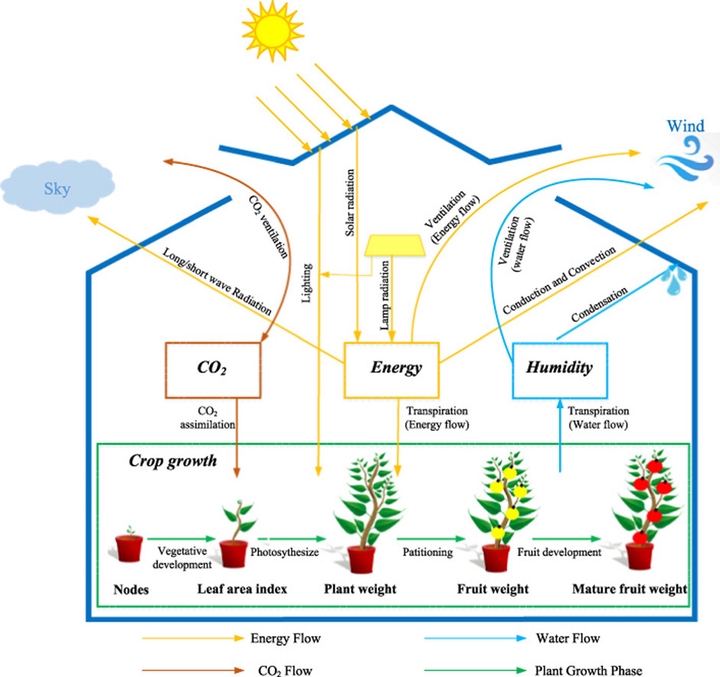
Abstract
Greenhouses are complex systems that require considerable amounts of energy. In order to optimize their performance, it is necessary to reduce the amount of energy per unit of crop produced. This requires a combined assessment of greenhouse energy balance and crop growth, as well as their interaction. In this work, more than 30 existing greenhouse models are reviewed and different algorithms are combined to propose an integrated energy-yield model. The physical model of greenhouse energy demand is based on the dynamic energy and mass balance while yield production is based on a physiological crop model. The integrated model is validated with observed energy demand and crop yield datasets during one full tomato growing period. There was good agreement between modeled results and measured data. The key advantage of the integrated model is that it can analyze drivers for greenhouse energy losses and quantify the influence of measures on both energy demand and crop yield. Due to the model’s dynamic and high temporal resolution, it is possible to study the use of renewable energy sources in greenhouse operation, as illustrated for thermal storage by means of phase change materials. A sensitivity analysis by changing day/night temperature, CO2 indoor concentration and artificial lighting is performed. The results illustrate how the model can be used for optimizing the performance of greenhouses in terms of specific energy demand (energy per crop produced). Therefore, the integrated model can be a tool for determining the optimum design and control parameters, which is particularly relevant for growers and sustainable agriculture systems in general. This study presents a parametric decision support tool that assists planers with optimizing energy performance of greenhouses while analyzing the trade-off between energy demand and crop yield.